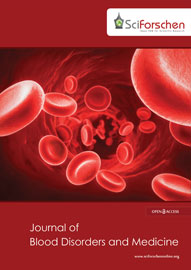
Assistant Professor of Pharmacology
School of Pharmacy
University of Louisiana at Monroe
Monroe, LA 71201
Email: barabutis@ulm.edu, nbarabutis@gmail.com
Education
| 02/2009 | Ph.D. | University of Athens, Athens, Greece |
| 02/2010 | Post Doc | University of Miami, Miami, USA |
| 04/2011 | Post Doc | University of Athens, Athens, Greece |
| 05/2011 | Post Doc | Georgia Regents University,Augusta, GA, USA |
| 07/2013 | Post Doc | Old Dominion University, Norfolk, VA, USA |
Biography
Research Interest
The causes of human pathophysiology and the development of novel compounds towards devastating and fatal diseases excited me the most at the onset of my career. Therefore, I decided to devote all my effort on the exploration of the intracellular mechanisms which are involved in the initiation, progression and maintenance of such abnormalities. My pre- and post- graduate research on inflammation-related pathologies have resulted in several first authored publications in peer reviewed journals of high caliber such as PNAS, British Journal of Cancer, AJP Lung Cellular and Molecular Physiology as well as a USA patent (US 20100152114 A1). Among other findings, I have introduced the anti-oxidative and anti-inflammatory role of Growth Hormone Releasing Hormone antagonists in human tissues and I have reported that the wild type p53 is crucial for the vascular barrier integrity in human lung tissues. Currently, I am honored to serve as a reviewer in more than 20 international journals.
Professional Activities:
2015: The paper by Barabutis et al entitled “p53 protects against the LPS induced lung endothelial barrier dysfunction” Am J Physiol Lung Cell Mol Physiol. 2015 Apr 15;308(8):L776-87 was selected in the “APS Select” list of the American Thoracic Society.
2010: The paper entitled “Activation of Janus kinase/Signal transducer and activator of transcription 3 pathway by Growth Hormone Releasing Hormone” by Siejka A, Schally AV and Barabutis N. received the “Polish Endocrine Society Award”.
Publications
- Joshi AD, Barabutis N, Birmpas C, Dimitropoulou C, Thangjam G, et al. Histone deacetylase inhibitors prevent pulmonary endothelial hyper-permeability and acute lung injury, by regulating heat shock protein 90 function. Am J Physiol Lung Cell Mol Physiol. 2015 Oct 23;PubMed PMID: 26498249.
- Barabutis N, Catravas JD. P53: "The Wall Watcher". Med Surg Urol. 2015 October 18; 4(4):1000e112.
- Barabutis N, Dimitropoulou C, Birmpas C, Joshi A, Thangjam G, et al. p53 protects against LPS-induced lung endothelial barrier dysfunction. Am J Physiol Lung Cell Mol Physiol. 2015 Apr 15;308(8):L776-87. PubMed PMID: 25713322; PubMed Central PMCID: PMC4398875.
- Barman SA, Chen F, Su Y, Dimitropoulou C, Wang Y, et al. NADPH oxidase 4 is expressed in pulmonary artery adventitia and contributes to hypertensive vascular remodeling. ArteriosclerThrombVasc Biol. 2014 Aug;34(8):1704-15. PubMed PMID: 24947524; NIHMSID: NIHMS603751; PubMed Central PMCID: PMC4228789.
- Thangjam GS, Dimitropoulou C, Joshi AD, Barabutis N, Shaw MC, et al. Novel mechanism of attenuation of LPS-induced NF-κB activation by the heat shock protein 90 inhibitor, 17-N-allylamino-17-demethoxygeldanamycin, in human lung microvascular endothelial cells. Am J Respir Cell Mol Biol. 2014 May;50(5):942-52. PubMed PMID: 24303801; PubMed Central PMCID: PMC4068943.
- Siejka A, Schally AV, Barabutis N. The effect of LHRH antagonist cetrorelix in crossover conditioned media from epithelial (BPH-1) and stromal (WPMY-1) prostate cells. HormMetab Res. 2014 Jan;46(1):21-6. PubMed PMID: 23839655.
- Joshi AD, Dimitropoulou C, Thangjam G, Snead C, Feldman S, et al. Heat shock protein 90 inhibitors prevent LPS-induced endothelial barrier dysfunction by disrupting RhoA signaling. Am J Respir Cell Mol Biol. 2014 Jan;50(1):170-9. PubMed PMID: 23972231; PubMed Central PMCID: PMC3930930.
- Barabutis N, Handa V, Dimitropoulou C, Rafikov R, Snead C, et al. LPS induces pp60c-src-mediated tyrosine phosphorylation of Hsp90 in lung vascular endothelial cells and mouse lung. Am J Physiol Lung Cell Mol Physiol. 2013 Jun 15;304(12):L883-93. PubMed PMID: 23585225; PubMed Central PMCID: PMC3680748.
- Barabutis N, Catravas JD. Anti-Inflammatory Activity of Hsp90 Inhibitors in the Human Vasculature. Medical & Surgical Urology. 2013; 2(1).
- Siejka A, Barabutis N, Schally AV. GHRH antagonist inhibits focal adhesion kinase (FAK) and decreases expression of vascular endothelial growth factor (VEGF) in human lung cancer cells in vitro. Peptides. 2012 Sep;37(1):63-8. PubMed PMID: 22819774.
- Siejka A, Barabutis N, Schally AV. GHRH antagonist MZ-5-156 increases the expression of AMPK in A549 lung cancer cells. Cell Cycle. 2011 Nov 1;10(21):3714-8. PubMed PMID: 22041656.
- Barabutis N, Siejka A, Schally AV. Growth hormone releasing hormone induces the expression of nitric oxide synthase. J Cell Mol Med. 2011 May;15(5):1148-55. PubMed PMID: 20518847; PubMed Central PMCID: PMC3822627.
- Siejka A, Schally AV, Block NL, Barabutis N. Mechanisms of inhibition of human benign prostatic hyperplasia in vitro by the luteinizing hormone-releasing hormone antagonist cetrorelix. BJU Int. 2010 Nov;106(9):1382-8. PubMed PMID: 20151966.
- Barabutis N, Schally AV. Growth hormone-releasing hormone: extrapituitary effects in physiology and pathology. Cell Cycle. 2010 Oct 15;9(20):4110-6. PubMed PMID: 20962577.
- Siejka A, Schally AV, Block NL, Barabutis N. Antagonists of growth hormone-releasing hormone inhibit the proliferation of human benign prostatic hyperplasia cells. Prostate. 2010 Jul 1;70(10):1087-93. PubMed PMID: 20232355.
- Barabutis N, Siejka A, Schally AV. Effects of growth hormone-releasing hormone and its agonistic and antagonistic analogs in cancer and non-cancerous cell lines. Int J Oncol. 2010 May;36(5):1285-9. PubMed PMID: 20372804.
- Siejka A, Schally AV, Barabutis N. Activation of Janus kinase/signal transducer and activator of transcription 3 pathway by growth hormone-releasing hormone. Cell Mol Life Sci. 2010 Mar;67(6):959-64. PubMed PMID: 20012909.
- Barabutis N, Siejka A, Schally AV, Block NL, Cai R, et al. Activation of mitogen-activated protein kinases by a splice variant of GHRH receptor. J MolEndocrinol. 2010 Feb;44(2):127-34. PubMed PMID: 19897610.
- Barabutis N, Schally AV. Antioxidant activity of growth hormone-releasing hormone antagonists in LNCaP human prostate cancer line. ProcNatlAcadSci U S A. 2008 Dec 23;105(51):20470-5. PubMed PMID: 19075233; PubMed Central PMCID: PMC2629286.
- Barabutis N, Schally AV. Knocking down gene expression for growth hormone-releasing hormone inhibits proliferation of human cancer cell lines. Br J Cancer. 2008 Jun 3;98(11):1790-6. PubMed PMID: 18506184; PubMed Central PMCID: PMC2410108.
- Barabutis N, Tsellou E, Schally AV, Kouloheri S, Kalofoutis A, et al. Stimulation of proliferation of MCF-7 breast cancer cells by a transfected splice variant of growth hormone-releasing hormone receptor. ProcNatlAcadSci U S A. 2007 Mar 27;104(13):5575-9. PubMed PMID: 17372203; PubMed Central PMCID: PMC1838504.
Books
- Barabutis N. Encyclopedia of Cancer. Schwhab M, editor. German: Springer Berlin Heidelberg; 2012. Chapter 7178, Growth Hormone Releasing Hormone
Meeting Abstracts
- Thangjam G, Joshi A, Birmpas C, Barabutis N, Betsy G, et al. Hsp90 inhibition suppresses bacterial endotoxin-mediated NF-ΚB transcriptional activation via a Sirt-2-dependent epigenetic mechanism in human lung microvascular endothelial cells. . American Thoracic Society International Conference; 2015; Denver, CO, USA. c2015.
- Dimitropoulou C, Barabutis N, Catravas JD. Posttreatment with the heat shock protein 90 (hsp90) inhibitor, AUY-922, reduces lung hsp90 tyrosine (Y) phosphorylation and pulmonary inflammation in LPS-induced acute lung injury (ALI) in mice. Annual Congress 2013. European Respiratory Society; 2013 September 09; Barcelona, Spain. c2013.
- Thangjam G, Dimitropoulou C, Joshi A, Barabutis N, Shaw MC, et al. Hsp90 inhibition attenuates LPS-mediated NF-kB-dependent gene activation by preventing the de-acetylation and maintaining the DNA binding of acetyl-histone H3(K9) in human lung microvascular endothelial cells (HLMVEC).. Experimental Biology; 2013; Boston, MA, USA. c2013.
- Dimitropoulou C, Joshi A, Barabutis N, Shaw M, Catravas JD. Treatment with the Hsp90 inhibitor AUY 922, reduces Pulmonary Inflammation and hyper permeability associated with LPS induced acute lung injury (ALI) in mice. American Thoracic Society International Conference; 2013; Philadelphia, PA, USA. c2013.
- Birmpas C, Joshi A, Barabutis N, Thangjam G, Gregory B, et al. Combination Treatment with HDAC 3 and 6 Selective Inhibitors Attenuates LPS-Induced Acute Lung Injury (ALI) in Mice. Experimental Biology; 2015; Boston, MA, USA. c 00 .
- Joshi A, Birmpas C, Barabutis N, Thangjam G, Gregory B, et al. Selective inhibition of Histone Deacetylase 3 or 6 Protects Against LPS-Induced Endothelial Barrier Dysfunction. American Thoracic Society International Conference; 2015; Denver, CO, USA. c 00 .
- Barabutis N, Dimitropoulou C, Birmpas C, Joshi A, Thangjam G, et al. P53 protects against LPS-Induced Lung Endothelial Barrier dysfunction. American Thoracic Society; 2015; Denver, CO, USA. c 00 .
- Joshi A, Barabutis N, Thangjam G, Birmpas C, Catravas JD. Lipopolysaccharide-induced histone deacetylase activity increases paracellular permeability in human lung microvascular endothelial cells. Experimental Biology; 2014; San Diego, CA, USA. c 00 .
- Thangjam G, Joshi A, Barabutis N, Birmpas C, Patel V, et al. Hsp90 inhibition abolishes LPS-mediated NF-kB transcriptional activation independent of IKKβ in human lung microvascular endothelial cells . Experimental Biology; 2014; San Diego, CA, USA. c 00 .
- Barabutis N, Handa V, Dimitropoulou C, Ravikof R, Snead C, et al. LPS induces pp60c-src-mediated tyrosine phosphorylation of Hsp90 in lung vascular endothelial cells and mouse lung. Experimental Biology; 2013; Boston, MA, USA. c 00 .
- Dimitropoulou C, Joshi A, Barabutis N, Shaw M, Patel V, et al. Post-treatment with the heat shock protein 90 (hsp90) inhibitor, 17-AAG, reduces pulmonary inflammation, hyper-permeability and airway dysfunction associated with LPS-induced acute lung injury (ALI) in mice.. Experimental Biology; 2013; c 00 .
- Joshi A, Thangjam G, Barabutis N, Shaw M, Catravas JD. Histone Deacetylase (HDAC) inhibition prevents bacterial lipopolysaccharide-induced paracellular hyper-permeability in human lung microvascular endothelial cells.. Experimental Biology; 2013; Boston, MA, USA. c 00.

